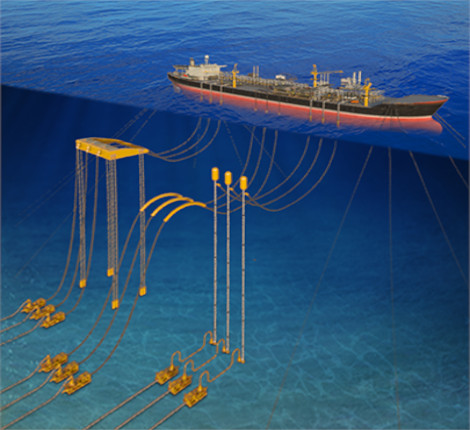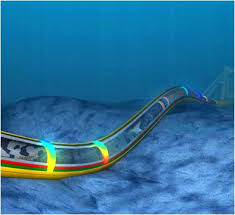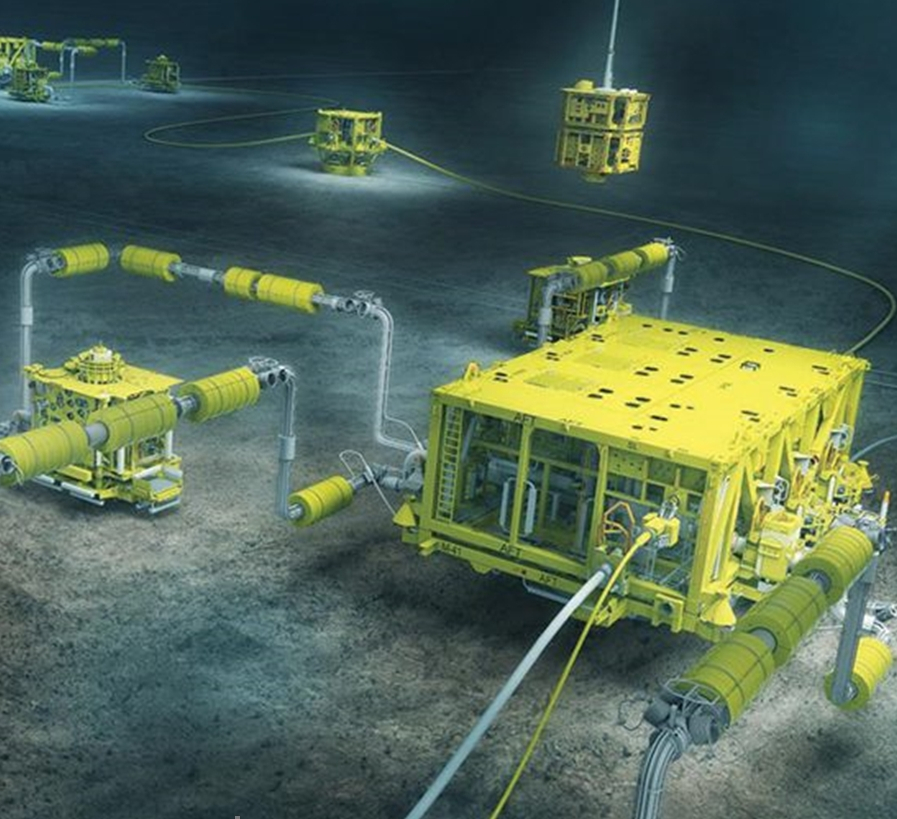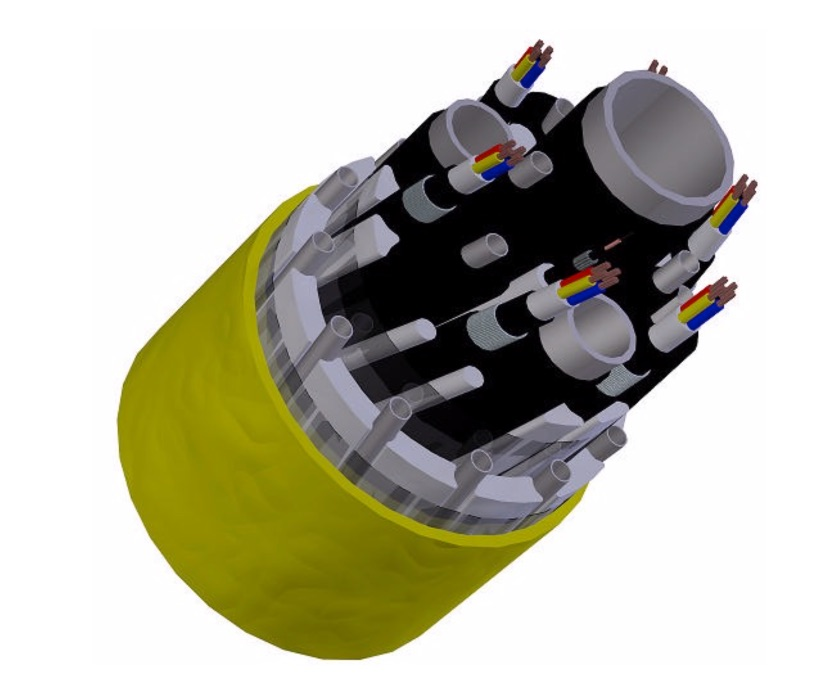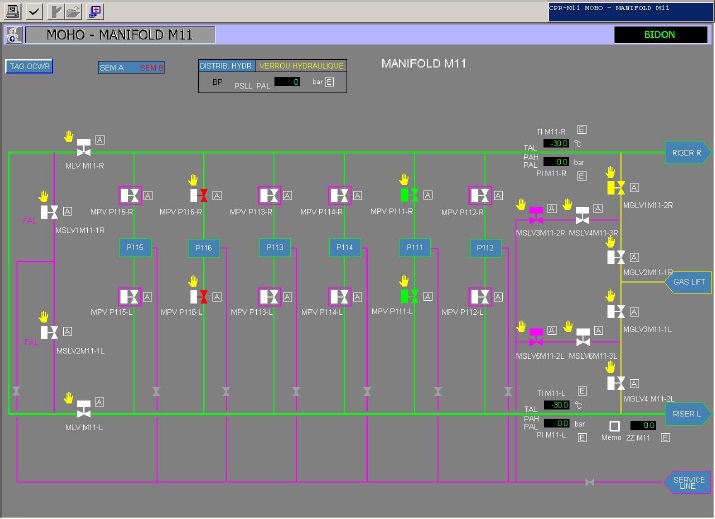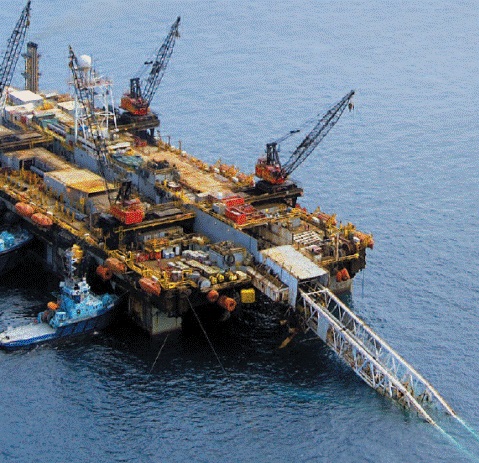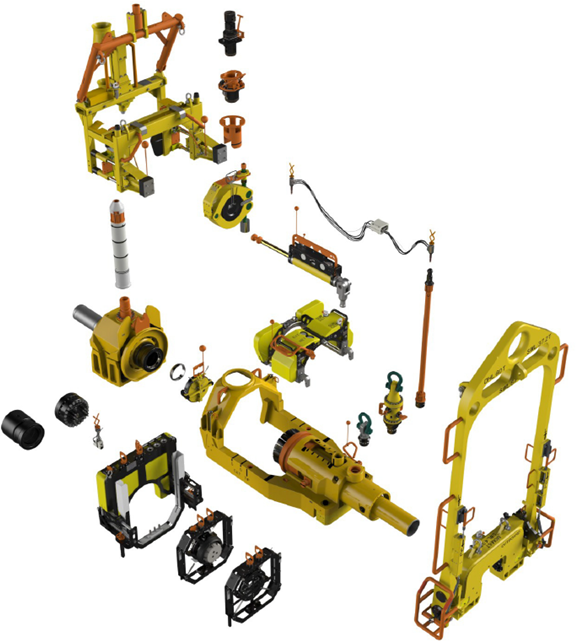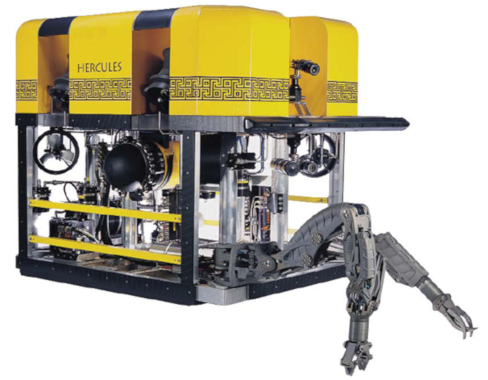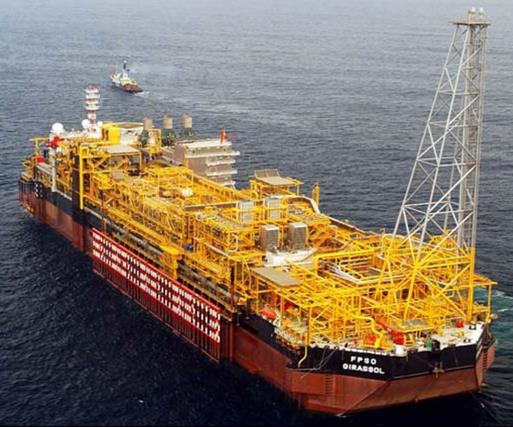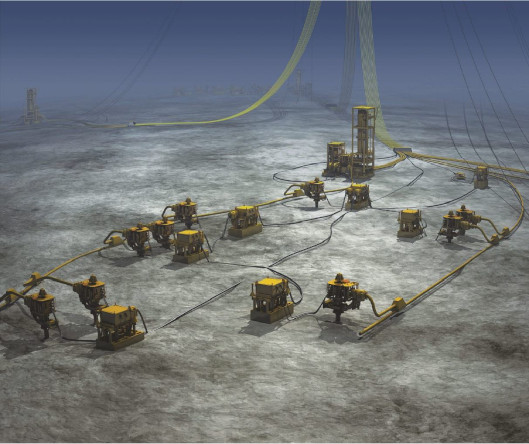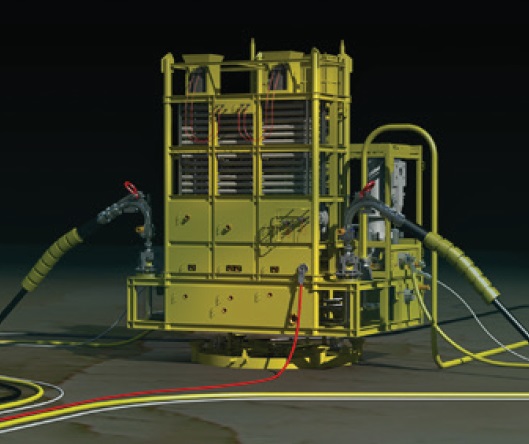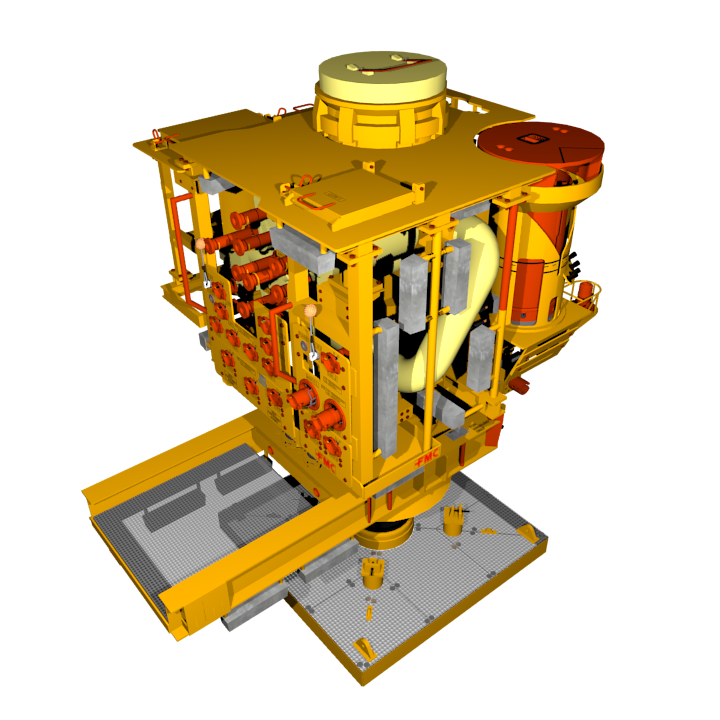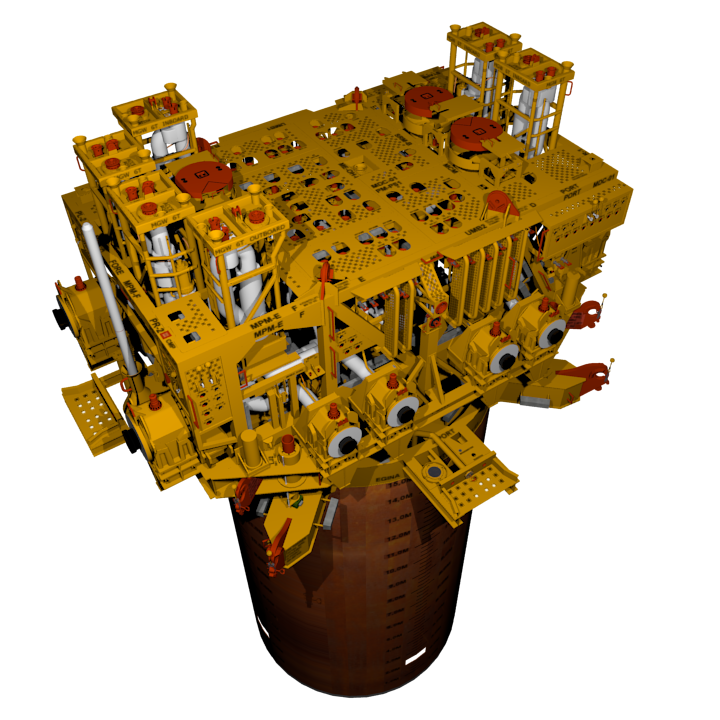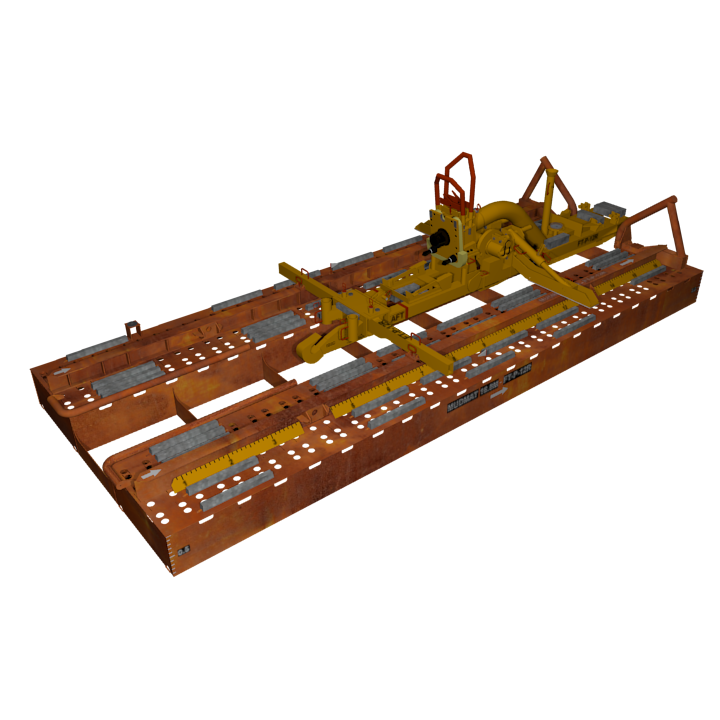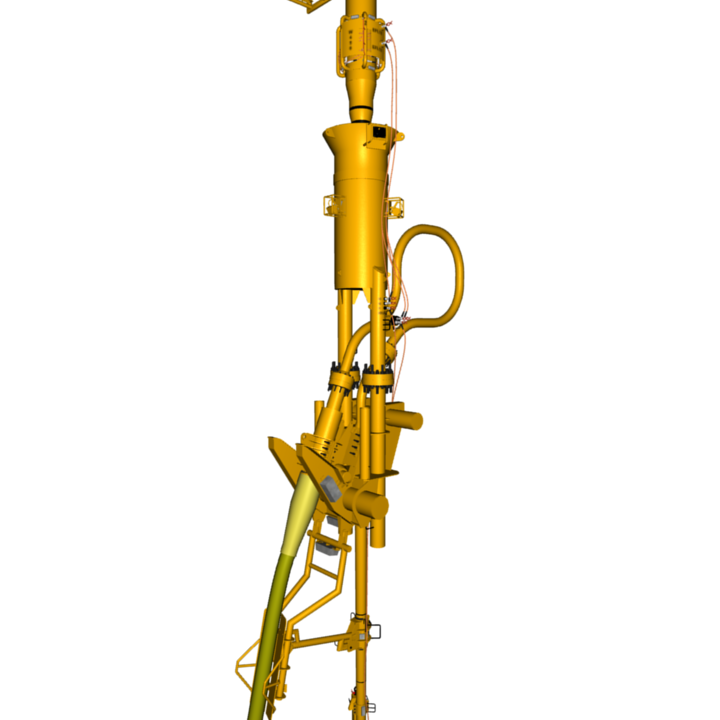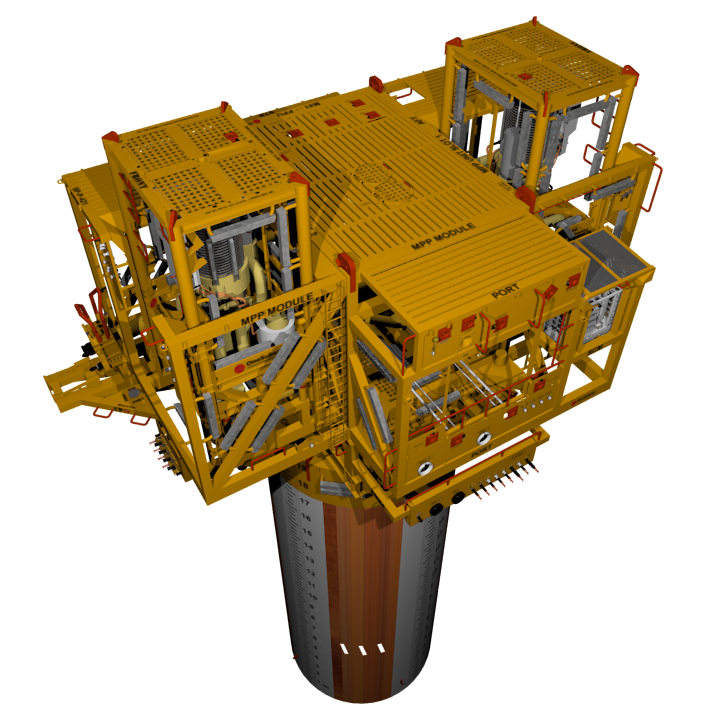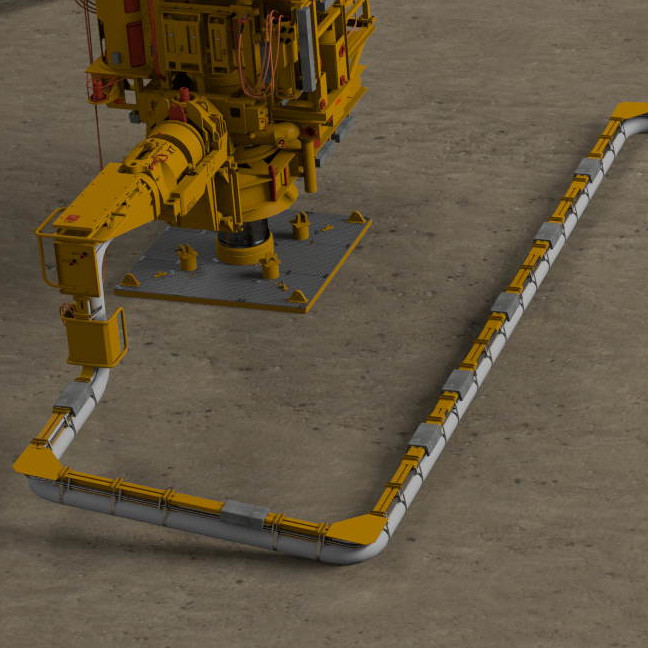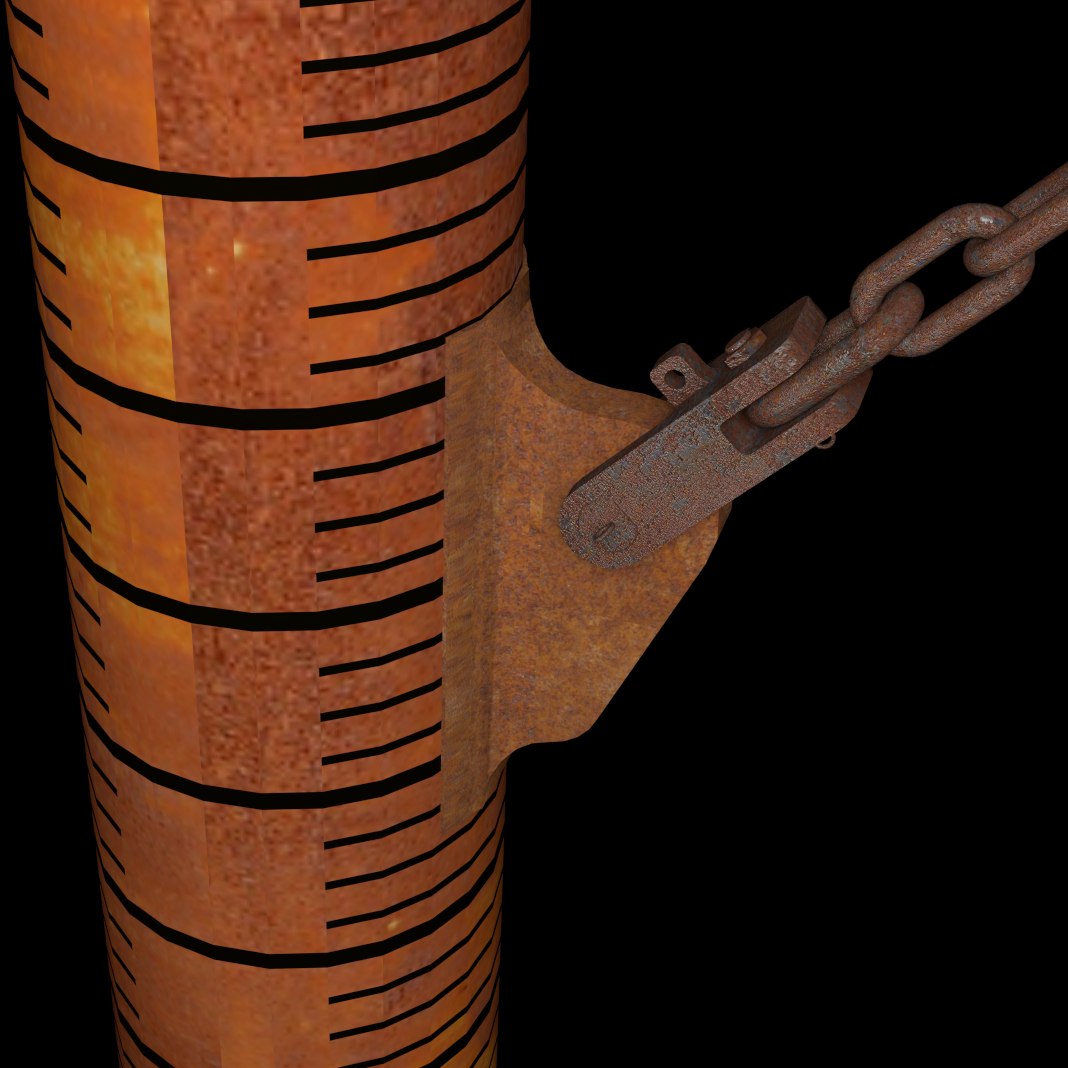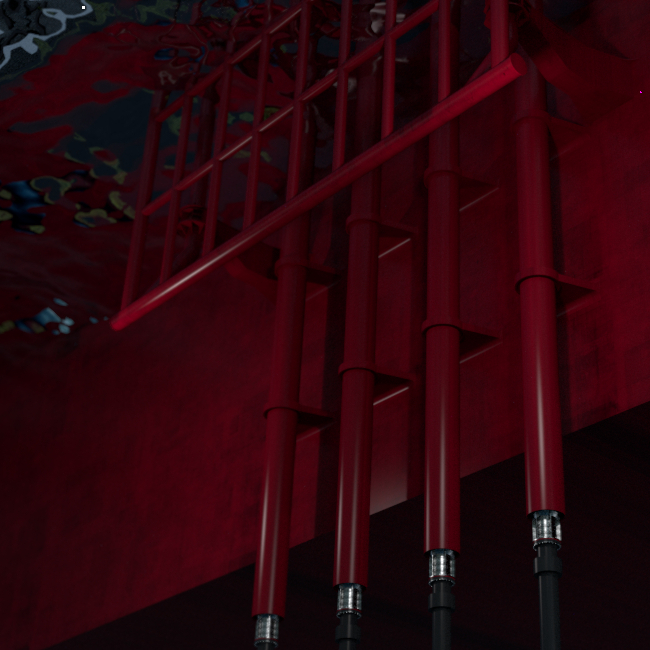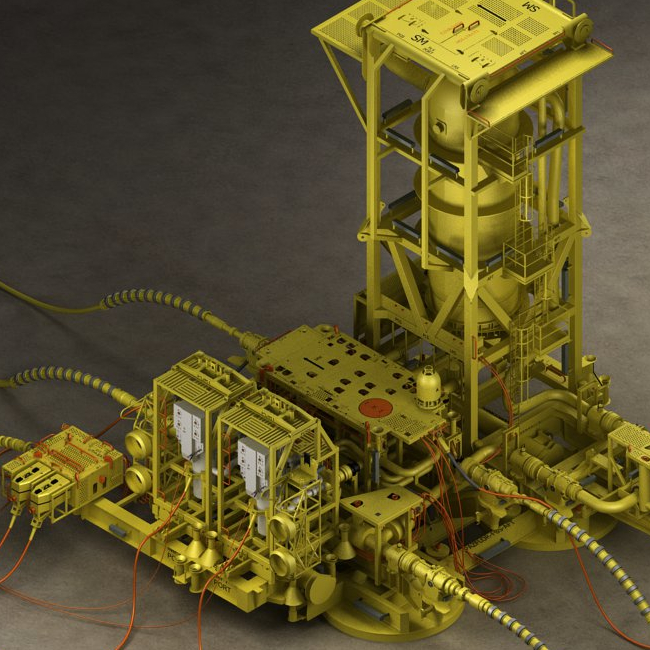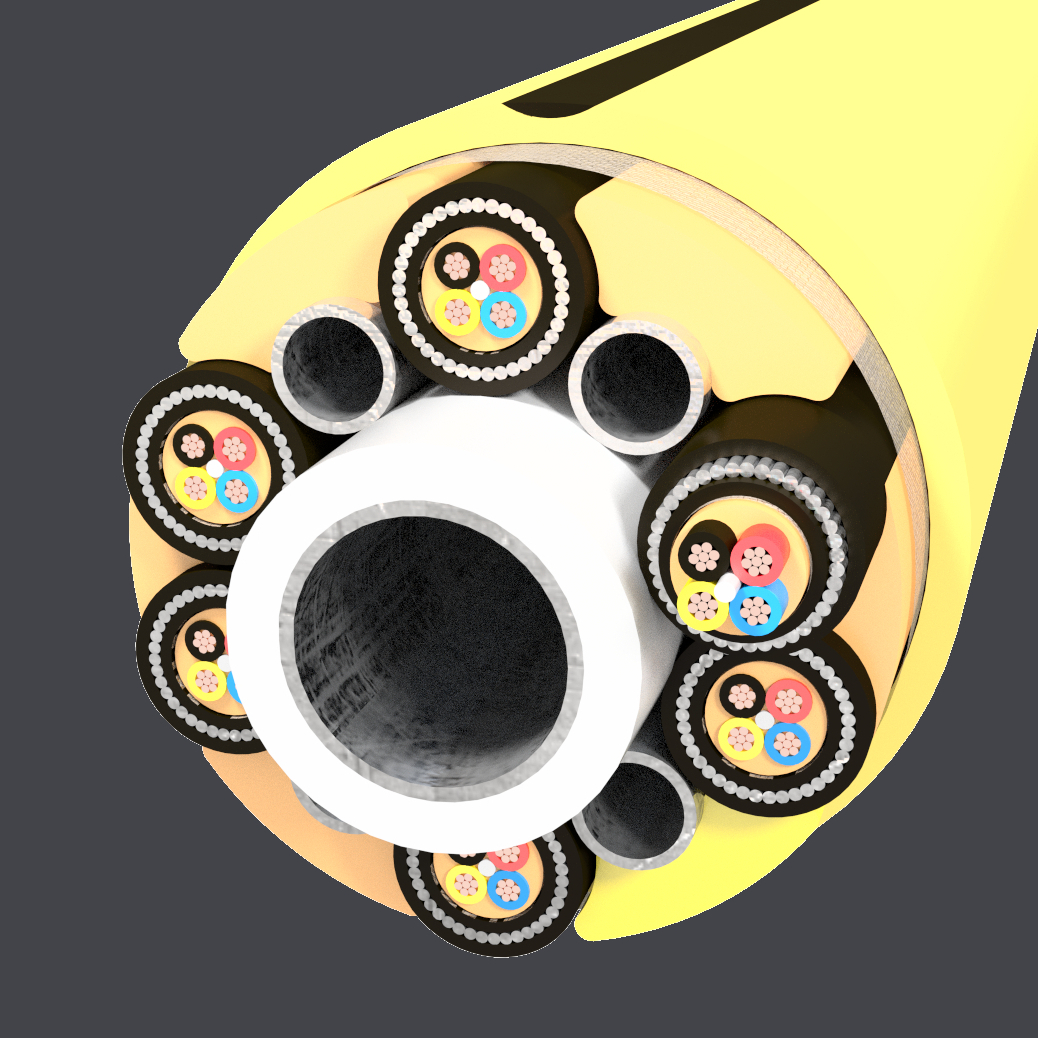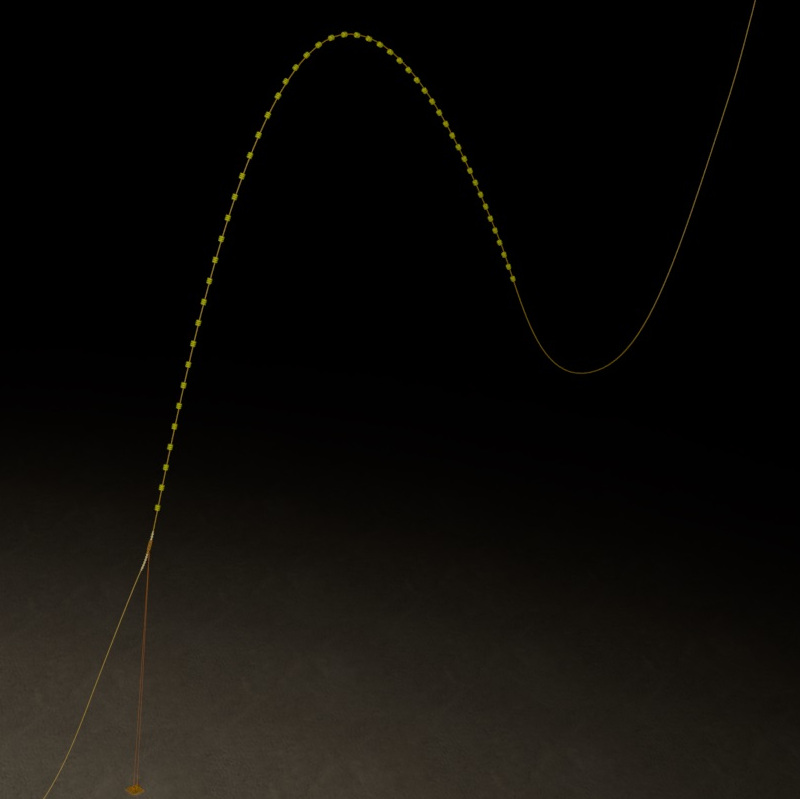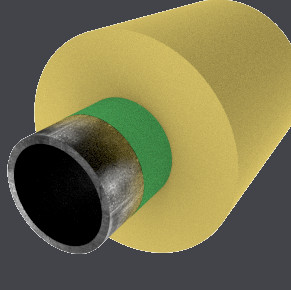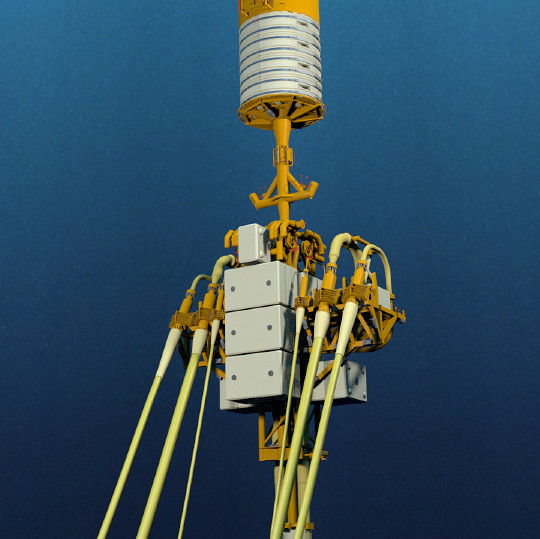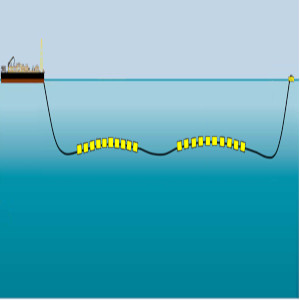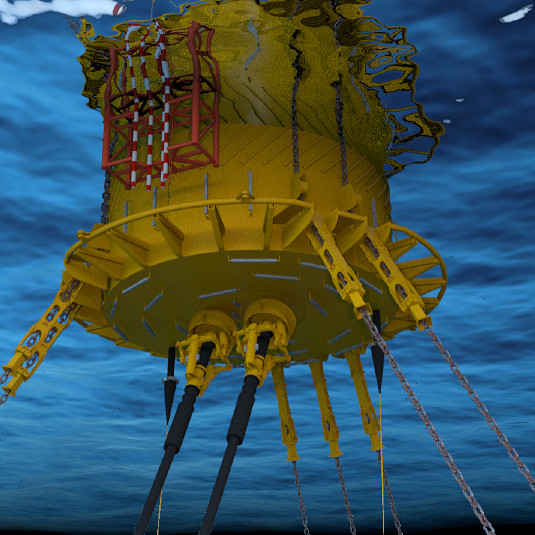1 Introduction
1.1 General
The cost of producing oil and gas through offshore facilities increases sharply as the water depths increases. In recent years, to ensure profitability in deep-water and ultra-deepwater fields, the size of processing plants and the number of risers have increased. The result is the development of number of large floating production systems capable of taking on big loads and offering large deck areas and storage capacities.
The increased size of floating units solves some problems but compounds others. Besides raising costs, due to the increase in steel weight and equipment, the big platforms bring about complexity in a new scale, demanding development of new technologies. These changes, in turn, add to the risks (cost & planning). The larger size also limits the number of available shipyards capable of delivering such a hull on time and on budget. In a broad economic sense, with current technology and in waters deeper than 1000m, oil fields must have reserves greater than 300 MMbbl, of crude lighter than ~20° API, to warrant development.
The aim of this document is to review the current state of the art of platforms and floaters, which are well adapted to deepwater field developments, and to highlight its key engineering topics, limitations, advantages and disadvantages.
This document commences, in Chapter , with an overview of existing available platform and floater concepts (e.g. FPSO, TLP, SPAR, Semi-Submersible, SSP), as well as new concept under development (e.g. EDP).
The Chapter will compare and gather the perceived ‘Strengths & Weaknesses’ of the available deepwater floater concepts.
Chapter provides an overview on ‘Contracting Strategy’ with regard to the provision of Floating Production Units (FPU) and key issues, e.g. EPCI, shipyard availability, leased FPSO, floater transportations & installation.
Finally the different mooring techniques and systems will be reviewed in Chapter .
Floating concrete structures (such as Nkossa floating production barge, Heidrun TLP, Troll Olje Semi-Submersible,…) are more seldom in Deepwater and thus are not included in the scope of this document which concentrates on comparing steel fabricated floating structures.
![[Tip]](tip.png) | Tip Click these links below for access to 3D resources: |
1.2 Codes, Standards, Specifications and Reference Documents
1.2.1 Codes & Standards
[1] | DNVGL | ||
[2] | DNVGL-OS-C102 | ||
[3] | DNVGL-OS-E301 | ||
[4] | DNVGL-RP-C103 | ||
[5] | DNVGL-RP-E301 | ||
[6] | DNVGL-RP-E302 | ||
[7] | DNVGL-RP-E303 | ||
[8] | DNVGL-RP-E304 | ||
[9] | DNVGL-RP-F205 | ||
[10] | IMCA-M-103 | ||
[11] | IMCA-M-140 |
1.2.2 Deepwater Reference Books
[12] | T084-EN001 | ||
[13] | T084-EN002 | ||
[14] | T084-EN003 | ||
[15] | T084-EN004 | ||
[16] | T084-EN005 | ||
[17] | T084-EN006 | ||
[18] | T084-EN007 | ||
[19] | T084-EN008 | ||
[20] | T084-EN009 | ||
[21] | T084-EN010 | ||
[22] | T084-EN011 |
1.3 References
This study is based on the following sources:
1.4 Acknowledgements
We wish to thank the platforms & floaters designer for the provision of technical information and photographs.
1.5 Definitions & Abbreviations
1.5.1 Definitions
- Deepwater
Water column comprised between 500m (1600ft) and 1500m (5000ft) of water depth..
1.5.2 Abbreviations
- ABS
American Bureau of Shipping
- API
American Petroleum Institute
- BTL
Buoy Turret Loading
- BTM
Buoy Turret Mooring system
- BV
Bureau Veritas
- CALM
Catenary Anchor Leg Mooring
- CPT
Compliant Piled Tower
- DDS
Deep Draft Semi
- DDSS
Deep Draft Semi Submersible
- DICAS
Differentiated Complacent Anchoring System
- DNV
Det Norske Veritas
- DP
Dynamic Positioning
- DP
Dual Port
- EDP
Emergency Disconnection Package
- EDP
Emergency Depressurizastion
- EDP
Extended Draft Platform
- EPC
Engineering Procurement and Construction
- EPCI
Engineering Procurement Construction and Installation
- EPS
Early Production System
- FLNG
Floating Production Storage and Offloading of Liquefied Natural Gas
- FPS
Floating Production Systems: TLP, SPAR, FPSO, Semi-submersible, etc.
- FPSO
Floating Production Storage and Offloading
- FPU
Floating Production Unit
- FSO
Floating Storage and Offloading
- FSO
Fail Safe Open
- GOM
Gulf of Mexico
- HMPE
High Modulus PolyEthylene
- ILMC
In-Line Mooring Connector
- IPB
Integrated Production Bundle
- IPB
In Plane Bending
- MBL
Moho Bilondo Phase 1Bis
- MBL
Minimum Breaking Load
- OD
Outside Diameter
- OMAE
Offshore Mechanics and Artic Engineering
- OPB
Out of Plane Bending
- OOL
Oil Offloading Line
- OTC
Offshore Technology Conference
- RTM
Riser Turret Mooring system
- SALM
Single Anchor Leg Mooring
- SCR
Steel Catenary Riser
- SIMOPS
SIMultaneous OPerationS
- SPAR
Single Point Anchor Reservoir
- SPM
Single Point Mooring
- SSP
Sevan Stabilized Platform
- STP
Submerged Turret Production system
- TCDD
Tapered-Column Deep Draft (Semi-submersible)
- TLP
Tension Leg Platform
- TTR
Top Tensioned Riser
- UCSF
Underwater Chain Stopper and Fairlead
- VLA
Vertical Loaded Anchor
- WOA
West Of Africa



